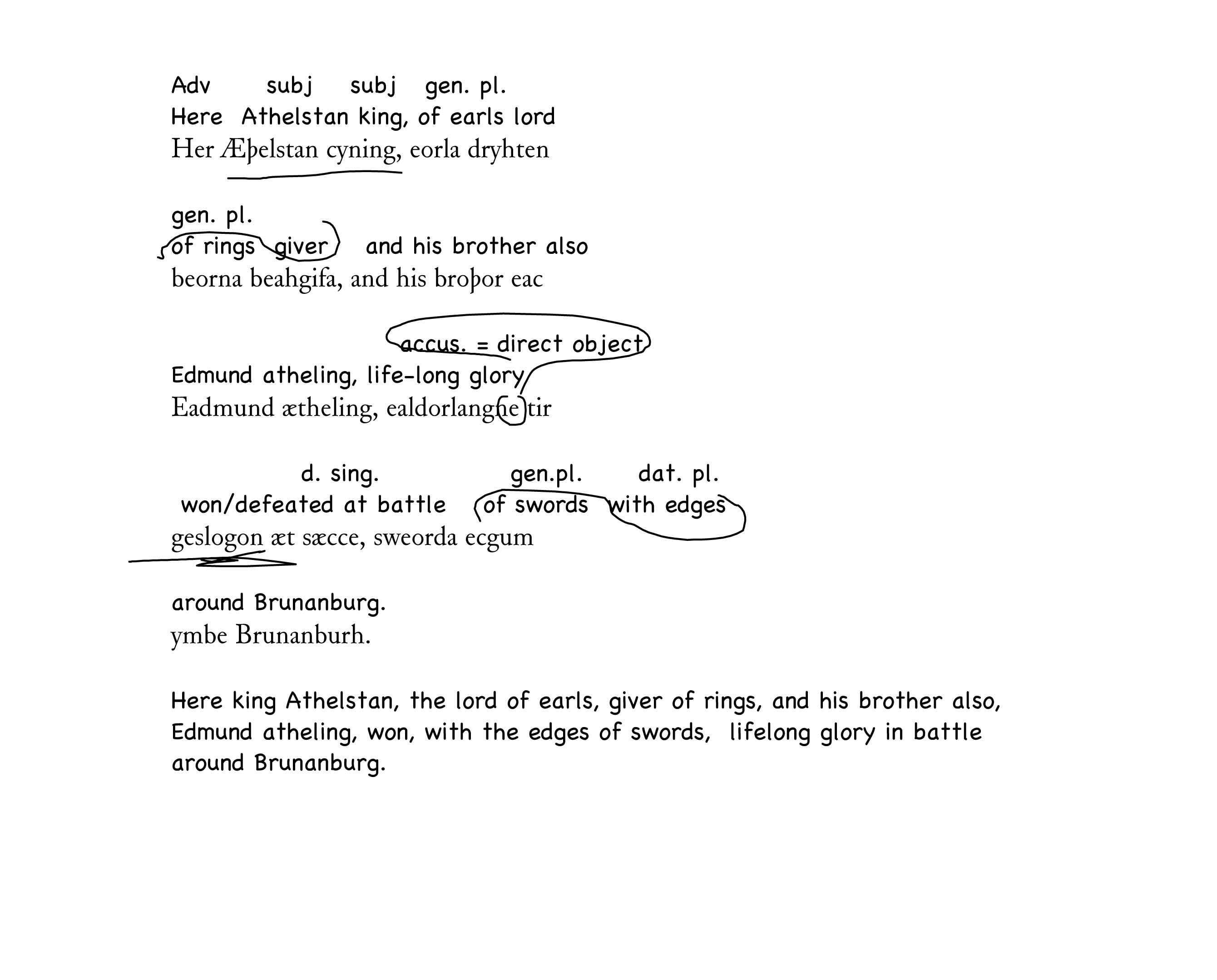
Congratulations on completing King Alfred's Grammar. If you've mastered the material in this book you are well on your way to being able to read some of the best literature in existence. Your next step should be to read and translate some of that literature. We say "read and translate" because even at this early stage there is much old English that you can probably just read. Ælfric, abbot of Eynsham, is perhaps the greatest prose writer of Old English, and he wrote so clearly and simply that you should be able to understand much of his work without great difficulty.
Poetry is both more difficult and more rewarding. You probably will not be able to immediately read poetry the way you can read prose, but you should be readily able to translate poetry with a dictionary in hand. The best practice is to write a gloss for the poem, writing the Modern English equivalent of a word over the Old English word as you translate. We recommend that you also note parts of speech, cases or verb tenses, particularly when you are not entirely certain about a sentence's meaning.

If you make a special effort to understand the grammar of the sentences you are translating, you will soon be able to appreciate the beauty and power of Old English poetry. We recommend that you begin with some of the poems from the Exeter Book, perhaps "The Fortunes of Men," "The Panther," and "The Whale." When you have more of a grasp on Old English poetic syntax, move up to the much-loved "elegies," including "The Wanderer," "The Seafarer," and "The Wife's Lament."
When you have a firm grasp of Old English poetic translation, it's time to tackle the greatest and most famous of Old English poems, Beowulf. The syntax and vocabulary of Beowulf can be difficult at times, but Beowulf is a great poem, and well worth the effort it may take to translate and read it.
We'll also remind you again that King Alfred's Grammar is a simplified introduction to Old English. If you become more serious about Old English, you will need to use a fully developed, detailed grammar. The standard grammar now available is:
Bruce Mitchell and Fred C. Robinson. A Guide to Old English. Oxford: Blackwell, 1994.
Frederic G. Cassidy and Richard N. Ringler. Bright's Old English Grammar and Reader, 3rd ed. New York: Holt, Rinehart and Winson, 971 is now sadly out of print, but used copies can be found. Bright's Reader is extremely useful.
The most comprehensive guide to Old English grammar is A. Campbell. Old English Grammar. Oxford: Oxford University Press, 1959 (repr. 1968).
Also useful is Richard Marsden. The Cambridge Old English Reader. Cambridge: Cambridge UP, 2004.
But whether or not you decide to pursue Old English further, we suggest that you take a moment here to congratulate yourself on making a good beginning towards knowing "those things that are most important for people to know." We think King Alfred would be pleased with your effort.
There is more information in the Appendices: